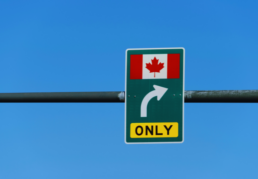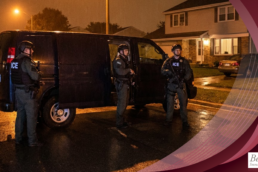If you are a physician who has participated in a U.S. exchange program under a J-1 visa, you are likely familiar with the two-year home residency requirement, also known as Rule 212(e). This rule mandates that J-1 visa holders, including many foreign medical graduates, must return to their home country for at least two years after completing their program before they are eligible to return to the U.S. on certain types of visas, including immigrant visas (green cards) and work visas such as the H-1B.
However, Canadian physicians have a unique advantage. Unlike many other nationalities, Canadian medical professionals can bypass the J-1 residency requirement when applying for an H-1B visa. This exception allows Canadian physicians to apply for and work in the U.S. under an H-1B visa without first securing a waiver or completing the two-year home residency requirement.
The H-1B Visa Pathway for Canadian Physicians
The H-1B visa is a non-immigrant visa that allows professionals, including physicians, to work in specialized fields in the U.S., provided they meet certain educational and licensing requirements. For Canadian physicians, the ability to apply for an H-1B visa without having to fulfill the two-year residency requirement offers a direct pathway to employment in the U.S. healthcare system. This is particularly advantageous for physicians who have completed residency or fellowship training in the U.S. and want to continue working in their specialized fields.
However, while the H-1B visa offers immediate relief from the home residency requirement, it is important for physicians to consider their long-term goals—particularly if the ultimate objective is to obtain U.S. permanent residency (a green card).
Options for Canadian Physicians Seeking Permanent Residency
If you are a Canadian physician who previously held a J-1 visa and you are aiming for U.S. permanent residency, you will need to address the home residency requirement. Here are the two main options available to you:
- Fulfill the Two-Year Home Residency Requirement: This option involves returning to Canada (or your home country) for two years after completing your J-1 program. While this may not be the most convenient route, it satisfies Rule 212(e) and enables you to pursue a green card once the requirement has been met.
For Canadian physicians, it is important to understand that fulfilling the residency requirement under Rule 212(e) is not necessarily as strict as it sounds. Under what is informally known as the “sleep in Canada” rule, you can still work in the U.S. during the day while fulfilling your two-year requirement, if you maintain a residence in Canada and return there to sleep each night. This can be particularly useful for those living near the U.S.-Canada border, as it allows you to continue practicing medicine in the U.S. while fulfilling your residency obligation.
- Obtain a Waiver During Your H-1B Employment: If returning to Canada for two years is not feasible or desirable, you may pursue a waiver of the home residency requirement while working under your H-1B visa. Physicians can often qualify for a waiver if their work is deemed to serve the public interest, such as practicing in underserved areas. Waiver programs for consideration include:
-
-
- Conrad 30
- Health and Human Services
- Northern Border Regional Commission
-
Next Steps: Planning Your Path to Permanent Residency
If you are a Canadian physician currently working in the U.S. under an H-1B visa, it is important to assess your options for addressing the J-1 home residency requirement before you apply for a green card. While the H-1B visa offers flexibility in terms of immediate employment, either fulfilling the two-year home residency requirement or securing a waiver will be necessary for your long-term goal of U.S. permanent residency.
Given the complexities of J-1 waivers, consulting with an experienced immigration attorney is essential. We can help you navigate the process and determine the best strategy based on your unique circumstances and career goals. With the right legal guidance, you can successfully address the requirements of Rule 212(e) and pursue your career and residency goals in the U.S.
If you’re a Canadian physician navigating the H-1B visa pathway or seeking a J-1 waiver, Berardi Immigration Law is here to help. Our experienced team specializes in healthcare immigration and can guide you through every step of the process, ensuring a smooth transition to working in the U.S. Let us assist you in achieving your career goals. Contact Berardi Immigration Law today!
Ready to have Berardi on your side?
Whether you’re a business looking to hire or a professional hoping to relocate, immigration law can be complicated. But you don’t have to do it alone. Put our experience to work for you.



